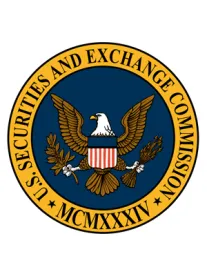For early stage private companies that need to effectively utilize available capital, often times attracting talent comes at the expense of issuing shares of stock (or options to purchase shares of stock) of the company through the use of an equity incentive plan. The issuance of these securities is vital for early stage companies to not only align the interests of employees and other service providers with the interests of investors, but it also allows the company to provide non-cash compensation to its workforce to help reduce the amount of cash outlay that is otherwise needed for purposes of R&D, to help launch a product or to expand the company’s existing presence in the market. But what happens when an employee or other service provider wishes to publicly solicit to sell its shares of stock of the issuing company? Below, I will touch on the general regulatory framework surrounding the offer and sale of securities and then I will discuss the most common securities resale exemption for private company securities in the public marketplace—Rule 144.
The Securities Act of 1933
To understand Rule 144, you should first understand the regulatory framework surrounding Rule 144. The Securities Act of 1933 (the “Securities Act”) governs every offer or sale of securities, whether the issuer of the security is publicly traded or is a privately held company and whether the sale of the issuer’s security is sold by the issuer itself or is a resale of the security by the holder thereof after the initial issuance. The Securities Act requires that any offer or sale of securities be registered with the SEC, unless there exists an exemption from registration. One exemption that many private companies rely upon for issuance of securities under its equity incentive plan is Rule 701 of the Securities Act, which allows an exemption from registration for securities issued by non-reporting companies pursuant to compensatory arrangements.[i] For a resale to the public of these issued securities, however, Rule 701 does not exempt the resale transaction from the registration requirements because the security issued under a company’s equity incentive plan pursuant to Rule 701 is what is referred to as a “restricted security”[ii]. Because most companies issue shares pursuant to an equity incentive plan without granting registration rights to the holders thereof, finding an exemption from registration is the key to allowing a securityholder to publicly solicit the resale of its shares of stock. This is where Rule 144 comes into play.
Rule 144
Rule 144 of the Securities Act is referred to as a “safe harbor” exemption, meaning that as long as the conditions of Rule 144 are met, the individual relying on the transaction exemption in Securities Act Section 4(a)(1) can be assured that they fit within the statutory exemption such that the securityholder will not be deemed an “underwriter” for purposes of Section 4(a)(1).[iii] The below requirements of Rule 144 vary depending on whether the holder of the company’s securities is an “affiliate” of the company, which would include but not be limited to executive officers, directors or significant shareholders in a relationship of control with the issuer.[iv] Sellers who are not affiliates, and who have not been affiliates for the three-month period prior to the sale, must only comply with (1) the holding period requirement and (2) the current public information requirement (which applies, in the case of a non-affiliate holder, only to securities of issuers that are reporting companies). Affiliate sellers of the issuer’s securities must fulfill all five requirements, which are set forth below:
1. Holding Period
The holder of the security must hold the security for a minimum period of time. If the issuer is not a reporting company, then the holding period is a minimum of one year. For the security of an issuer that is subject to the reporting requirements of the Securities Exchange Act of 1934 (the “Exchange Act”), the holder must hold the security for a minimum of six months. Note that in the case of shares held as a result of the exercise of a stock option, the holding period for those shares begins on the date the option was exercised and not on the date the option was granted. Additionally, if a non-affiliate holder purchased the restricted shares from another non-affiliate, then the current holder in most circumstances can “tack” on that non-affiliate’s holding period to satisfy the minimum holding period requirement.
2. Current Public Information
There must be current public information available about the issuer (most of the time). For non-affiliate holders of the securities of an issuer that is not a reporting company, the current public information requirement does not apply, and so long as the shares were held for the minimum holding period noted above, the requirements of Rule 144 have been met. On the other hand, for securities of a non-reporting company held by an affiliate, the public information requirement can be met if certain items of information about the business are publicly disclosed, such as information about the nature of the issuer’s business, its directors and officers and its financial statements.[v] For securities of an issuer that is a reporting company—whether or not the holder of the security is an affiliate—the public information requirement is generally met if the issuer has complied with the periodic reporting requirements of the Exchange Act.
3. Trading Volume Limitation
If the holder of the securities is an affiliate, then the amount of securities that can be sold in any three-month period is limited to the greater of: (1) one percent of the shares of that class outstanding, or (2) if the securities are trading on a stock exchange, the average weekly trading volume of such securities during the four calendar weeks preceding the filing of the Form 144.
4. Manner of Sale
If the holder of the securities is an affiliate, all sales must be “brokers’ transactions” and directly with a “market maker”, or in “riskless principal transactions.” This means that the sales must be handled as routine trading transactions for which the broker receives no more than usual and customary commissions. Additionally, neither the seller nor the broker can solicit orders to buy the securities.
5. Notice of Proposed Sale
If the holder of the securities is an affiliate, the seller must file a notice with the SEC on Form 144 if the sale involves more than 5,000 shares or the aggregate dollar amount is greater than $50,000 in any three-month period.
Conclusion
Rule 144 is a useful tool used by securityholders circumvent the public resale restrictions contained in the federal securities laws. Of the five requirements contained in Rule 144, if the holder of the company’s securities is a non-affiliate and the company is a non-reporting company, then only the holding period condition must be met to satisfy Rule 144. Additionally, if the holder is a non-affiliate and the company is reporting company, then only the holding period and current public information conditions of Rule 144 must be met. Otherwise, for affiliate holders, all five conditions must be met in order for the holder to avail itself of the Rule 144 safe harbor. These general requirements of Rule 144 can be nuanced depending on the specific circumstance concerning the proposed resale. It is therefore recommended that you contact knowledgeable counsel to help navigate the regulatory landscape.
[i] See Rule 701 of the Securities Act for the specific requirements of the exemption.
[ii] A “restricted security” is a “security acquired directly or indirectly from the issuer, or from an affiliate of the issuer, in a transaction . . . not involving a public offering.” See Rule 144. Restricted securities are typically received through private placement offerings, equity incentive plans or Regulation D offerings.
[iii] Section 4(a)(1) of the Securities Act exempts a transaction “by a person other than an issuer, underwriter, or dealer.” The Securities Act defines an “underwriter” as “a person who has purchased from an issuer with a view to . . . the distribution of any security. . . .” Rule 144 establishes certain criteria for determining whether a person is not deemed to have engaged in a distribution of a security, and thus would not be an underwriter for purposes of Section 4(a)(1). See Preliminary Note to Rule 144.
[iv] An “Affiliate” is “a person that directly, or indirectly through one or more intermediaries, controls, or is controlled by, or is under common control with, such issuer.”
[v] For a full list of required public disclosures please see Rule 15c2-11(a)(5)(i) to (xiv) and (xvi).




 />i
/>i

